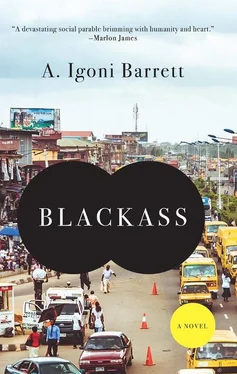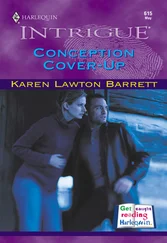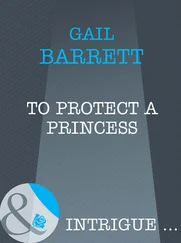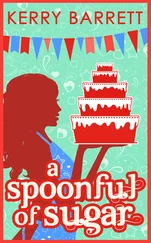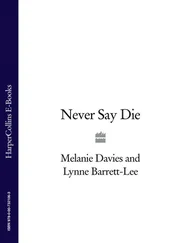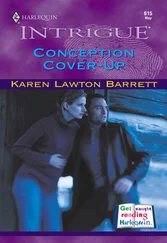It was his sister he envied the most. Her confidence in herself had always exasperated her older brother, whose self-esteem was further bruised by his awareness that her self-belief was in no way misplaced. She seemed able to accomplish anything she set her mind to. Even as children she would win her own battles in the playground and then rush forwards to help out with his; she learned to whistle before him, despite being five years younger; from when she was three years old, whenever she and he left the house together, she insisted on crossing motorways without his assistance; even into their teens, whenever they were both caned for some wrongdoing, her tears always dried first. Then again, she had never faced the parental pressure he did — a woman can find a husband to take care of her, but a man must take care of his wife, Furo’s father was fond of saying — and yet she excelled at her studies to the point that even their mother accepted that her daughter was the best chance the family had of producing a success story. Aside from academics, his sister had a ravening appetite for leisure reading, and she was the only one in the family who spent money on magazines and novels. Sometimes it seemed there was nothing she didn’t know. It was from her that Furo learned how to start up and navigate through a computer (this process occurring over the holidays she had spent transcribing his handwritten final-year thesis into digital format), and after he graduated and returned to Lagos to seek a job, it was she who urged him to join Twitter — which she wasn’t on but knew enough about to assist him with opening his account — as it was perfect for self-advertising. She had even appeared on national TV. She did this through her own efforts, and in the face of her brother’s scoffing dismissal of her ambition, by trying for and making the hot seat of ‘Who Wants to Be a Millionaire?’ — which, by the way, she might have been if her boyfriend Korede, who was her ‘phone-a-friend’ lifeline, hadn’t failed her at the eleventh question. She departed the show with winnings of two hundred and fifty thousand naira and arrived home to a hero’s welcome from her parents, and, from her brother, as ever, adoring envy.
Furo was certain that by leaving he’d escaped the almighty struggle to convince his family that he was still the same person, son and brother. Even if he succeeded in suspending their disbelief, there were then the frantic efforts they would undertake to regain what was lost: the medical investigations, the money it would cost them, the media circus that must follow; and, probably, for his mother, whom he knew would be desperate enough when all else had failed, the recourse to consultations with spiritual healers. Now, with his disappearance, they would expend effort and spend money in attempting to solve the mystery, but at least they would be left with an image of him that they could hold on to.
Yes, he was doing the right thing, he was even surer.
Better his family retain their image of him and he his of them.
Furo awoke to the caress of the early sunlight streaming in through the window above his head. After a quick glance to check that nothing had changed — his colour was the same, as white as night becomes day — he sat unmoving for a long time, his ears tuned to the city. Hunger came, and the harder he resisted the stronger the pangs became. His neck resumed its ache. His palms, when he dropped them from rubbing his nape, were oily with grime. Beneath the dirt, the skin was paler than any hand he’d ever studied, and the lifelines were etched fainter, the palm edges and pads reddened with coursing blood. Not bad-looking as hands go, he said to himself … but owning these, calling them his, that was too much to handle.
Dropping his hands to the ground, Furo pushed up into a crouch, then picked up his folder and slipped it under his arm as he straightened to full height. He stood motionless for some moments inhaling the grass-dew smell of a new day, but when he started brushing off his clothes, the cement dust of abandonment flooded his nostrils, choking him with sadness.
It was time to move forwards.
Again the stares. The hawker from whom he bought a seventy-naira loaf of Agege bread stole glances at him as she knelt beside her wooden tray, sawed open the loaf, and spread ten naira worth of mayonnaise on it. The woman who sold him three sachets of pure water stared with open amusement as he squatted by her icebox and washed his face and his mouth and his hands and drank what was left. And the pedestrians, the sleepy-eyed taxi drivers, the minibus passengers with their work-ready faces, the road sweepers and roadside beggars and policemen standing useless at clogged intersections — all followed him with their eyes as he strode by.
Under the sun’s glare, almost as hard to bear as the stares from which there was no hiding place, Furo trekked from Ikeja to Maryland. He didn’t plan his direction: it was set out for him when he found himself beside the police college’s long-running fence on which was painted at intervals RESTRICTED AREA: KEEP MOVING. He obeyed this instruction until the fence was passed. He kept on moving, past the landscaped grounds of Sheraton Hotel & Towers and the red-and-white facade of the Virgin Atlantic building. He slowed his steps to skirt a cluster of commuters at Onigbongbo Bus Stop and quickened his pace as he approached the thumping roar of a helicopter rising from the bowl of OAS Heliport. Onwards he went, throwing step after step along the sun-cracked sidewalk until he reached the watering-hole bustle of Maryland Junction.
Foremost consequence of Furo’s journey was the burning sensation on the bridge of his nose, which made his eyes water when he mopped his sweating face with his handkerchief. But the gruelling trek, and the unrelenting lash of the sun, the total pointlessness of his fatigue, also bleached his mind of clinging delusions and helped him decide where to go. To Lekki, stamping ground of the Lagos rich. He would go to The Palms, the largest mall in Lagos.
There, at least, the air conditioning was free.
And it was far from Egbeda, as far from his family as he could go in Lagos.
And then again, there would be others who looked like him.
Getting to Lekki from Maryland would involve hopping buses. There was a BRT bus terminus at Maryland Junction, and Furo, opting for the cheaper ride over the faster minibuses, approached one of the ticketing agents. After surprising the woman with his accent, he bought a one-way ticket to Marina. He boarded the bus, chose a window seat near the back, and rested his tired head against the sweat-smudged glass. While the bus was filling up with passengers, Furo avoided looking at his face in the glass, a wasted effort, because by the time the bus set off, he had noticed that his hands were shaking from hunger, and that the spray of hair on his forearms seemed to change colour from red to orange in the slant of sunlight, and that some of the glances he drew from the other passengers were sympathetic, concerned, almost pitying of the plight that was evident in his skin. During the bumpy, unhurried, many-stop ride, he also noticed, always in front of him, the persistent presence of a nose that smarted from sunburn.
He had lunch at Marina. Again eba and egusi soup, and again in a buka, but this time with no incident more remarkable than cheering cries from a gaggle of area boys, motor park hooligans, who gathered outside the buka to watch him eat. After he settled the bill, he strode blank-faced through a swarm of child beggars till he reached the BRT bus stand, and when the last of the beggars, the most determined, a pretty Chadian girl who tugged at her pigtails as she recited her tired script, finally gave up and shuffled off, he settled on to the bench to await the arrival of the bus to Lekki. The skyline ahead of him was the postcard image of Lagos, the agglomeration of high-rises that landmarked the financial district of Broad Street, and averting his eyes from this view in boredom, Furo gazed over the murky waters lapping against the marina behind his bench. On the far shore floated a metropolis of cargo ships and derrick rigs. Canoes and old tugboats crawled across the waterway, their paddles digging and outboard motors chugging. Scavenging egrets soared and squabbled over the sluggish waves of Five Cowrie Creek: that dumpsite for market refuse and road-kill carcasses; that open sewer into which the homeless and the shameless emptied their bowels in public view. Furo could see them now, men mostly, squatted along the marina wall with trousers rucked around their ankles and faces straining from the pleasure of bursting haemorrhoids. The familiar smell of Lagos motor parks, marijuana and tobacco smoke mingled with the stench of petrochemicals and moonshine alcohol and human effluence, blew on a breeze from the water’s edge: a dizzying mix that Furo was happy to turn his back on as his bus pulled up.
Читать дальше
